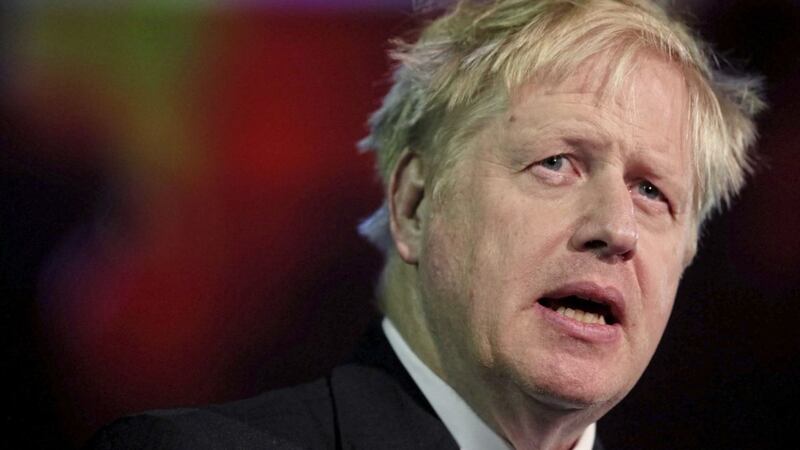We were speaking from different locations but a good many years ago I took part in a TV debate with a certain Michael Gove. The main topic was the peace process: he had adopted a highly-critical stance in that regard and a lively discussion took place between us.
Writing about the Belfast Agreement, Gove has compared it to the appeasement of Hitler and his associates by Neville Chamberlain in 1938. But at this stage, even those who equate the Provisional IRA with the Nazis must surely acknowledge that the Good Friday pact has been more successful in bringing about peace than the Munich Agreement.
When he entered the current race for the Tory leadership, it occurred to me that Gove might turn out to be the first British prime minister I had ever argued with on TV. However, the cocaine revelation seems to have torpedoed his chances of taking the top job. Fortunes change rapidly in politics and, let’s face it, present-day Westminster can resemble a Marx Brothers movie — but without the same level of gravitas!
I also met Boris Johnson in Belfast once, when he was still a full time journalist. It didn’t take long to realise that, whether you liked him or not, this fellow was indeed a colourful character. Even those who are appalled at the prospect of his becoming prime minister might take a degree of consolation from the fact that ‘Bojo’ will never be boring.
There is something about Alexander Boris de Pfeffel Johnson that reminds one of the King Lear quote: “I will do such things—what they are, yet I know not, but they shall be the terrors of the earth.” As prime minister, he would presumably take a hard public stance on Brexit, leaving the European Union to ponder whether it should reply in kind or look behind his rhetoric to see if there was room for compromise.
Dublin is in an awkward position: the backstop card has been played for all it was worth but, if there is a no-deal Brexit, we could end up with the nightmare hard border that the backstop was supposed to prevent. Does anyone really believe Brussels is going to allow imports from north to south, into the EU, without checks and tariffs? Mind you, if the Irish government and Brussels finally accept a time-limit on the backstop, opposition TDs at Leinster House will have a field-day. And as if there wasn’t enough to worry about, there is the bizarre stand-off with our Celtic cousins from Scotland over fishing-rights at Rockall.
Meanwhile, four members of Dáil Éireann – Fianna Fáil, Fine Gael and Independent Deputies – have been elected to the European Parliament and by-elections to replace them must be held by January at the latest. Four contests at the same time would be tantamount to a mini-general election.
Another possibility is that a full-scale general election might be called instead, e.g., if Taoiseach Leo Varadkar feels that the by-elections will not go well for Fine Gael. His main rivals, Fianna Fáil, had a good run in the recent local elections and could well be shaping up to become the biggest party after the next Dáil has been chosen by the voters. There is speculation that whoever comes out on top might be in a position to form a majority government with the aid of the Greens, Labour Party and others, including Independents, but that Sinn Féin would not hold the balance of power.
Mary Lou McDonald’s party suffered a considerable setback at the polling-booth and they need to up their game and reboot their strategy. The dreary soap-opera at Stormont hasn’t been doing them much good. Their opponents in the south have been developing a mantra to the effect that the “Shinners” are addicted to the role of spectator: sitting it out in the north, staying outside the chamber in the House of Commons and engaging in non-stop shrill denunciation at Leinster House.
Politics is a tough business and it is possible some of the older Sinn Féin members occasionally miss what seem in retrospect like simpler times, when the Armalite took precedence over the ballot-paper. But RTÉ’s recent showing of the impressive documentary film, “I, Dolours”, based on interviews with republican activist the late Dolours Price, was a salutary reminder of the darkest period of the Troubles and how talented and idealistic young people could be drawn into a scenario where pain and sorrow, death and destruction ruled the day. So many lives cut short, so many families bereaved, so many bright eyes dimmed forever, with stark and dreadful happenings on all sides.
Constitutional politics has its ups and downs but there is no case for returning to the bomb and the bullet. As an old teacher of mine once said: “Enough people have died for Ireland, we need to live for Ireland instead.”
Ddebre1@aol.com








